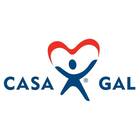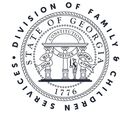|
Think you can’t make a difference? By donating to Brightside Advocacy, you are providing resources that make a significant impact on the futures of children and families in our community. But did you know that not only is your donation making a difference in our community, it is making a difference on your well-being! Giving is Good for Your Health: Giving has positive effects on your mental and physical health. Research shows that when you give, your brain releases endorphins that make you feel happy, reduces stress, and improves your overall sense of well-being. Recurring giving is also linked to a decrease in depression and other mental health issues. Doing good actually does make you feel good. You Walk the Walk: If you believe in a cause, donating to support it is a way to align your actions with your values. Whether it's a cause related to social justice, the environment, or healthcare, your donation shows that you are committed to making a difference in the world. You walk the walk, talk the talk, and provide yourself with a sense of accomplishment by making a gift. Your Donation Can Inspire Others: By donating to a cause you care about, you are setting an example for others to follow. Your friends, family, and colleagues may be inspired to donate as well, creating a ripple effect that can lead to even greater impact. Give your gift, inspire others, and watch the difference YOU make first hand. No matter how big or small, your donation can and does positively impact the sustainability of our programs. A gift of $25 can help recruit a new CASA volunteer. A gift of $500 trains one CASA volunteer. Every dollar counts. What better way to help yourself than by helping others! Make a difference today:
0 Comments
There is a poster hanging on the wall of the juvenile courthouse that I often find myself staring at between hearings. It bears an image of a little girl with tangled curls and a toothless grin. Underneath her are scrawled the words “I am not a troublemaker.” When I first began my work as a court appointed special advocate, I didn’t understand the importance of this simple message. It is now my creed. When time, stability, and mental health care are luxuries, it is difficult to peel back the layers of trauma or neglect that influence a child’s “troublemaking” or undesirable behaviors. Yet that is all most of these behaviors are: responses to trauma, the result of unmet needs. This is why CASA is so important. As a volunteer, it is your duty to discern a child’s true story and advocate fearlessly for all their needs not only in the courtroom but in the classroom, doctor’s office, and foster home. You have the special privilege of getting to know a child fully and helping the rest of those working in the child welfare system to do the same. You can give a child a voice when they otherwise might have none. If I have learned anything over the last few years, it is that there is never a boring day in the world of child welfare. Abuse, neglect, drugs, runaways, good that looks evil, evil that looks good. I’ve seen enough to know I’ve still seen nothing. Children in foster care possess a resilience that most outsiders can’t begin to fathom. Unfortunately, for many of these children, their trauma doesn’t end when they are removed from an unhealthy home and brought into the custody of the Department of Child and Family Services (DFCS). In America, the child welfare system is a chaotic cycle of burnout and scarcity in which foster children’s needs often go unmet. 1. Social workers are routinely overburdened and underpaid. The Georgia Welfare Council reports a persistent increase in the turnover rate of social workers due to burnout alone. Attracting quality legal representation to the field of child welfare is difficult for similar reasons. 2. It is nearly impossible to find mental health care professionals willing to accept foster children’s complex cases. More than 50% of counties in America “lack a single psychiatrist”. Existent practices often do not accept the subpar insurance allotted to children in the system. 3. And finally, there are never enough foster homes to meet demand. The State of Georgia recently came under fire for its practice of hoteling children for whom no foster family, group home, or psychiatric facility could be located in time. Given the stress inherent to the child welfare system, it is easy to see how a child’s needs might slip through the cracks unintentionally. Their complex set of experiences and emotions must be distilled into line items on paperwork that can be disseminated quickly to the morass of professionals responsible for their wellbeing. Casefiles are often littered with labels like “manipulative”, “angry”, “defiant”, or “messy”. Children are branded by their worst moments and given little chance to provide context. These labels will often haunt them for the duration of their time in foster care. Stories written by former foster children reverberate with examples of this phenomena and the long term damage it wreaks. In my own experience, these mis-labelings can be both heartbreaking and dangerous. A child with whom I worked had been branded as a thief or “kleptomaniac” after he repeatedly took items from the cafeteria of the group home. Something about the report did not sit right with me. There was no history of stealing in his casefile. Some research and phone calls revealed that there was, in fact, far more to his story. The child had been suspected of having diabetes but was not receiving any medication. He’d been transferred into DFCS custody before he was able to see an endocrinologist to confirm his diagnosis. He was stealing juice to stymie drops in blood sugar that were resulting in diabetic attacks during the hours in which the cafeteria was closed and no food was available. I still wonder what would have happened if I had not read between the lines of his case file and picked up the phone. How long can diabetes go untreated without serious consequences? How many foster homes would have rejected him out of fear that he would steal their food or possessions as well? His story is one of many. No matter how hefty the case file, no matter how ominous the labels, if you look closely, no child is ever just a troublemaker. CASAs are in a unique position to set the record straight.
Initially, I did not seek out Savannah Court Appointed Special Advocates (CASA). In a stroke of luck, CASA came to my email inbox. I started receiving the monthly Savannah CASA newsletter in 2020. I am sure I somehow signed up via community engagement on social media, but I had no idea what it was when I started receiving the newsletters. Having experienced living in a shelter for a brief period as a teenager, the program immediately spoke to me. I would read the monthly newsletters for over a year and toy with the idea of becoming a CASA volunteer. One night in the Fall of 2021, I researched the process and filled out the application. There was a class to start at the beginning of 2022, but it was unfortunately full. I carried on and hoped to hear something in the future. That moment came in the Spring of 2022; the training was a bit more intense than I had anticipated and the role of a CASA was a lot more than I had imagined, but with every session I would feel with more certainty that this was the perfect role for me. Advocacy has always come natural to me; I have been doing it long before I even knew what the word advocate meant. There is a sense of duty that comes with advocating, especially when doing so for those that cannot advocate for themselves. I understand the frustration of being powerless, of not being listened to, and not having a voice to change something for the better. Due to that empathy, I strive to connect, observe, and listen to the children on my case so that I may be the best advocate for them while they navigate through this traumatic journey of being in the foster care system. I was assigned my case a few days after swear-in, it was two brothers, 13 and 6 years old. They had a 12-year-old sister who was living with fictive kin and not assigned to me initially. Since I have been their CASA, they have been placed in three different foster homes and I have also become the CASA to their sister who is now in DFCS custody. I have been blessed with a Guardian Ad Litem (GAL) that is also assigned to all three children and together we have created a very strong bond with the children and have advocated for them fiercely. Together, we have had to make some tough recommendations often conflicting with those of Division of Family and Children Services (DFCS) case workers and foster placement agencies. I have faced several challenges in overcoming communication barriers with resource personnel and foster parents. I saw firsthand the importance of being a CASA. It is our role to speak up to the court and let them hear the children’s concerns. Had the children not had a CASA and GAL to listen to them and report the things they were experiencing at their foster placements, they likely would not have been removed and placed in a safer, more caring placement that met their needs. Being a CASA volunteer honestly has been a lot more than I anticipated. I am heavily involved and invested in my kids, I want them to know they are not alone, and they have someone in their corner always. All the time and efforts spent are rewarding, because I see my actions are making a difference and helping the children that I have become so close with. I know they will likely be in care for some time, but I will keep working towards reunification and encouraging those involved with the case to ensure the children’s best interests are being served, and when they’re not, I’ll be there to advocate for them.
The Background 11 year old Flora is placed with a fictive kin resource, “aunt” Vanessa. Her mother Diane has been working hard to secure appropriate housing and complete parenting classes. Her CASA is Kathleen. The Report 2/1: 0.5 Hours Kathleen talks to Flora every other week on the phone. This week, Flora tells Kathleen about her dance lessons and her upcoming recital. She also has an upcoming dentist appointment that she is nervous about. 2/4: 1 Hour Kathleen spends some time at home updating CASA’s Optima database with her calls with Flora as well as the emails between CASA, DFCS case manager and Flora’s attorney. She also makes a note to follow up about the dental appointment and other medical appointments for the upcoming court hearing at the end of the month. 2/6: 2 Hours Kathleen visits Flora in the home with her “aunt” Vanessa, the fictive kin resource. They made beaded bracelets together, talked about how school was going, and how much she was enjoying her dance lessons. Everyone decided to go outside and sit on the front porch. Flora practiced cartwheels in the yard while Kathleen spoke with Vanessa about how everything was going and if she felt they needed anything. Vanessa felt that Flora was really struggling in math and could possibly benefit from a tutor. 2/11: 0.2 Hours Kathleen calls the school and speaks with the counselor and a few of Flora’s teachers. She is still doing well, but as Vanessa had suggested, Flora could use some tutoring in Math. Kathleen contacts the DFCS worker to inquire about a tutoring referral and to share notes from the home visit and the conversation with the counselor and teachers. Kathleen also inquires about when the overnight visits with Diane, Flora’s mom will begin. 2/16: 0.5 Hours Kathleen documents her efforts this month and makes a note to follow up with DFCS about the tutoring in the next week if it is not put in place. She also calls Diane to schedule a good time to come by her home. 2/19: 0.5 Hours Kathleen has her bimonthly call with Flora who just returned from dance lessons. She was really excited to share the news that there will be a recital soon. Flora also told Kathleen that she started tutoring yesterday and that her visit with her mom was great. She brought cupcakes and they colored together. 2/20: 1 Hour Kathleen visited Diane, Flora’s mother, at her home to see how things were going . They talked about Flora’s tutoring and the upcoming court hearing. Diane is doing really well at work and is continuing to attend her classes that are required per her DFCS case plan. They talk about the upcoming overnight visits and it's clear that Diane is happy to have more time with Flora. She has her room all set up for her with a new bedding set that Flora chose. 2/21: 2 Hours Kathleen updates her notes with news about Flora and the calls and visits she has made in the last few weeks. 2/22: 1 Hour Kathleen and her CASA Coordinator work on the court report for the upcoming review hearing. 2/23: 1 Hour Kathleen follows up with Flora’s school to make sure that tutoring is consistent. Kathleen also speaks with Vanessa while Flora is at a friend's house, to see how the overnight visit with her mother went. 2/26: 2 Hours Kathleen finishes her court report with the last details about tutoring services and also calls Vanessa to set a time to come by when Flora is there. 2/28: 2.5 Hour Court was running behind, but that gave Flora, Kathleen and Vanessa extra time to be together. Kathleen brought snacks and a book that Flora was excited to read. Kathleen asked Flora if there was anything she wanted to share with the Judge or if she wanted to speak to them in chambers. Flora said that she did and wanted to make sure they knew how much she wanted to return home and that she is going to be in a recital. After the hearing, Kathleen and Diane scheduled their next visit while Flora would be home, since the Judge ordered weekend visits. The Impact Although the life of a CASA volunteer can be somewhat unpredictable, depending on the case, it is certain that their impact in the life of a child is priceless. Their voice in a courtroom and their words to a judge could be life-changing for a child experiencing foster care. We are so grateful for all the Savannah CASA volunteers who dedicate their time and efforts for the best interest of the children that we serve. To learn more about becoming a CASA Volunteer, click here: Change a Child's Story! About the Author
Sarah entered foster care when she was 16 years old. She has a long history of people abandoning her throughout her life. The trauma she has endured from this abandonment has caused her to feel a lot of mistrust in the people around her and feeling alone in this big system we call foster care. Sarah was not perfect while in foster care, what teenager is? She was moved from placement to placement when she would act out or runaway (one time) and no one gave her a chance…. Except the CASA. Sarah’s CASA, has been by Sarah’s side since the beginning of the revolving doors of case managers, attorneys, and placements. I firmly believe without the persistence and support from the CASA, we would have lost Sarah even more to the negative outcomes of children in foster care. Sarah was not doing well in school due to her numerous placement changes but was determined to get her GED so that she can go to college one day. She has big dreams to be successful. But, there was a lot of problems with that process. Sarah, at this time was living in a hotel because placement could not be located for her and the CASA had to step in to find financial resources for her to take her GED because the steps for the State to pay for this would take weeks and those weeks would turn into more discouragement for Sarah with a system that has already not followed through on promises before. The CASA was able to get GED testing paid for. Within a week, Sarah had her GED! She passed with high scores all on her first try. We were over the moon excited for her! As time was getting closer and closer to Sarah turning 18, we knew the clock was ticking fast to help encourage her to stay in foster care to receive all the benefits that come with that. The CASA helped schedule a tour of a local Transitional Living Placement so Sarah could see first hand what it looked like and what all was offered to help her into adulthood. This motivated Sarah to want to stay in care but she was also adamant that if she was not in a transitional living placement as promised by the time she turned 18, she would be signing out. Again, this is coming from a youth who is already so frustrated with being told mistruths and things not happening as explained, she was giving one more chance to not be let down. In order to be approved for independent living for youth over 18, there has to be approval from the State representatives for this to occur. Sarah was assessed and denied for transitional housing a couple days after she turned 18. This upset Sarah and she immediately wanted to sign out of foster care and just leave the state completely. The reasoning behind Sarah being denied were not fair in the eyes of Sarah and does not reflect supporting our older youth aging out of care, but stifling them more into the horrible statistics that we have for our youth turning 18 that include homelessness and incarceration. We have a motivated youth that has plans for her future and is motivated to do well but needs support. The support of her “parent” (The State). The reasoning for denial stemmed from past behaviors of not so good coping skills. Coping skills that Sarah has been able to articulate how she has improved and continues to plan to improve going forward in her life. But that was not good enough. The very things that she was denied services for were the same things that the numerous case managers never referred her for services for. Our older youth deserve a chance for a positive outcome with all the resources that a youth not in foster care would have from their parents. Sarah wasn’t given a chance, all of our youth deserve a chance. About the Author
In 2012, I was living in Florida and was retired for some time. Looking for something to do, I attended a senior living fair. In my retirement, I volunteered for a variety of organizations: Garden Club, Museum Docent, library assistant, Women’s Auxiliary Club, and a two-year stint with Hospice, to name a few. One day I picked up a Senior Living Magazine when I got home and saw a small advertisement about becoming a guardian ad litem (GAL) — what we call CASA. It was a Friday afternoon, but I decided to call them and learn more about what it takes to be a volunteer. By Monday morning, I was sitting in a training class. The instruction was demanding. The subjects touched on a wide range of knowledge and requirements. Not everyone stayed. Each session, the class got smaller and smaller, but those who did stay became very dedicated GAL/CASA volunteers by the time the judge swore us in. I realized that I had “found my calling.” Unlike many volunteer organizations, as a CASA, I felt I had a direct involvement and impact on the mission—THE CHILD. The work is rewarding, and the organization made me feel like a professional, although we were unpaid volunteers. In my experience, being a CASA allowed me to draw on my formal education and skills that I had honed in my former career. In addition, being a part of CASA introduced me to new friends and colleagues that have impacted my life. After all, we all worked together for the same goal, advocating for children. In early 2014, my husband and I moved to Savannah. As soon as we got all the boxes unpacked and the pictures on the wall, I looked for a CASA program here in Chatham County. There were new faces and some different ways of doing things. Still, the special sense of fulfillment I had initially found in Florida was here in Savannah- a direct impact, use of my education and skills, a sense of professionalism, and camaraderie. I soon found myself a part of an creative organization, always looking to improve, and a real leader in the field of advocacy: Brightside. Unfortunately, due to a health crisis within my family, I have not been an active CASA volunteer for the past few years. Initially, I wanted to return to what I loved being a part of. Unfortunately, I have yet to find myself in a position to begin dedicating so much of my time. However, I have been able to continue to make an impact by volunteering on special projects and have been able to participate in training other CASA volunteers. Most recently, I helped with landscaping at the Bright House. Every hour I can give as a volunteer of any kind is an important donation— a donation of one’s precious time. But let’s face it, it takes money for Brightside Advocacy to expand its programs and innovative ideas to train additional CASAs to advocate for every child and create support programs that directly benefit these children and their families. Thanks to Kate and her dedicated staff at Brightside, there are more ways than ever to make an impact. Over these past few years, as my role as CASA decreased, my role as a donor increased. I miss being a CASA and witnessing firsthand the difference in these children’s lives. But most importantly, my role as a donor still connects me with the original elements that made me feel I had “found my calling” to begin with. If you are looking for a way to make a difference, I encourage you to contact the Brightside team to hear about ways you can help. About the Author
Throughout my life I’ve learned a ton of useful lessons.The most valuable lesson I’ve learned is that the best results come from leading with intention, integrity and intelligence. Knowing what your purpose is, being honest and genuine in your relationships and actions, and continuing to learn and apply the knowledge you obtain will allow you to show up as your best self without sacrificing who you are or what you’re here to do. This sounds like a simple master key, but it took me some time to really get down and it still takes continuous practice. I see myself as an ever-evolving student of life. Sometimes that can be an overwhelming feeling, but mostly it allows me to remain present and committed. After settling back in Savannah during the pandemic and before joining Brightside, I made the intention to involve myself within the community through volunteering and supporting various efforts and events. I knew I wanted to connect with the youth and their families. With that intention, I was able to make lasting connections with people I will be working alongside for years to come. This same intention is what led me to Brightside. I am honored to have the position of Community Outreach Coordinator because it allows me to do what I love most, help inform and bring the community together. During my first weeks I quickly knew I wanted to volunteer to be a CASA. It just made sense to remain in grassroots work that makes such a direct impact in children’s lives. As someone who has had to navigate several systems, I know firsthand how vital it is to have the right information and the right people in your corner. In my opinion, it is the most effective way to combat hardships in life and why I’m sure I will enjoy being a resource for youth and their families. My intention with all that I do is to share the information I’ve gathered and be an advocate for those who need it. I treat these relationships and this opportunity with great integrity because that’s what’s required to build strong foundations. I admire how we all show up and are willing and committed to serve. This work is truly rewarding and allows you to recognize the humanity in each and every person involved. Both adults and children are doing the best with what they have. Becoming a CASA and learning more about the ins and outs of these cases has helped me consider the full capacity it takes to work within these systems efficiently. Understanding this, I challenge us all to come into each space with grace for one another and the intention to work towards a greater good using our intelligence and standing strong within our integrity. Together we can continue to make change. About the Author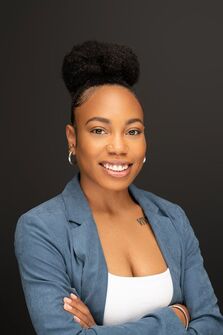 Jalecia Quarterman is a Savannah native and graduate of Georgia Southern University with her Bachelor's in Psychology and minor in Childhood and Family Development. Most of her work and volunteer time has been with nonprofits that focus on helping youth and their communities. She's always had a passion for advocating and forward progression and believes the most effective way for change is to lead by example. With this mindset she fits right in with the team at Brightside as the new Community Outreach Coordinator. She is excited to put her grassroots experience to the test by actively engaging and informing the community. Outside of service, she enjoys relaxing with her dog and practicing mindfulness through journaling, stretching and reflecting. 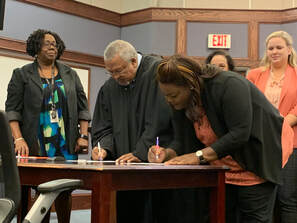 Melissa signing her CASA oath. Melissa signing her CASA oath. I recently began working as our Administrative Assistant and Training & Recruitment Specialist at Brightside Advocacy. As the Training & Recruitment Specialist, I get to do one of my favorite things: prospective CASA volunteer interviews. Through the interview process, I am always curious to learn why prospects pursue this kind of volunteer work. What drives a person to pursue a volunteer experience that may be emotionally draining, potentially stressful, and at times, frustrating? While I cannot answer for others, I can tell you why I chose this kind of work. Before joining the Brightside staff, I was a CASA volunteer. I swore in October 2019. Reflecting on the last three years, I am reminded why I became a CASA volunteer. My story: On a weeknight in April 2019, I was working on homework (did I mention that I was finishing my master’s degree while doing CASA training and working full time?!). Anyway, I took a quick break to scroll through my phone and stumbled upon an article about a little girl who was fatally abused by her caregivers. While this wasn’t my first time learning about child abuse and neglect, this time, I was deeply impacted by this little girl’s story. At that moment, empathy and action were aligned within me. I wanted to do something about the anger, sadness, and powerlessness I felt. Soon after that experience, I attended a CASA volunteer information session and began the application process. I remember both nervousness and excitement sitting in my chest. I was nervous about this new experience but excited that I was actively pursuing child advocacy. Even after I swore in, I was still afraid of the unknown. I was filled with thoughts like, “what if I mess up?” or “I’m not a legal expert,” and so on. However, my desire to change a child’s story outweighed my fears. Additionally, I was surrounded by support from my advocacy coordinator and the CASA team. 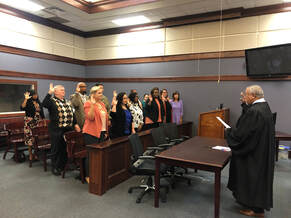 Melissa swearing in on October 15, 2019. Melissa swearing in on October 15, 2019. We tend to think that the presence of fear indicates that we are doing something harmful. While I agree that fear can be a protective warning, it may also present itself when we are doing something unfamiliar to us. Throughout my life, I have learned that taking action is the only way to ease nerves and abate fear. Many of us want to live more confident lives, but to gain confidence, we must grow- which can be scary. Had I given in to the fears surrounding CASA-volunteer-unknowns, I would not have taken the first step. As I consider my story, I see that my compassion trumped my fears. What about you? Maybe you’re a volunteer who can relate to my story. Perhaps you know someone who wants to volunteer, but fear is getting in the way. In this instance, I would say that fear may be a taste of the unknown. I hope that your desire to change a child’s story outshines your fears. Become a CASA volunteer today. Learn more. About the Author
When I was asked to join other staff members for the CASA National Convention in Seattle, I was so honored. I did not know what to expect but was happy to participate and get to know some other members better. Little did I know how much it would affect me and help me better understand how important CASA's work is around the country. Hundreds of volunteers and staff gathered to network, meet inspirational speakers, and attend small workshops of our choosing. There were times when the information we learned and the stories we listened to would move us to tears. We listened to the plights, problems, and solutions CASA's all over this country experience in their attempts to better the cases of the children they work with, including my home state of Mississippi and other counties in Georgia.
Overall, I felt a deeper sense of purpose in my volunteer work with CASA. I recently found a pad of paper from the Hyatt we stayed in Seattle. I used it to make notes while in my breakout sessions. One speaker really moved me, and I wrote down the take-a-way of what he tried to convey to us: "You have one life. How will you live it? To elevate others? Or diminish them? Bring them up? Or put them down? Lend a hand? Or walk away? Speak….? Or DO"? It spoke volumes about those that work with CASA. We choose to DO.  Shelley Smith swore in as a CASA volunteer in October 2020. She won a fundraising competition with the grand prize of a trip to Seattle for the National CASA conference. Shelley is a local artist, a gourmet cook, and one of the coolest people you will ever meet. Originally from Mississippi, Shelley chose to make Savannah her home and we are incredibly grateful for that. When I learned I would be interning with Brightside Child and Family Advocacy (Brightside) this summer, I prepared in the best way I thought possible. I researched the child welfare system, trying to get a basic understanding of everything from juvenile court proceedings to foster care placements. I tried to understand how children were supposed to be protected and guided into a safe and loving home. Once in Savannah, I learned that none of that really mattered. Looking at what’s on paper could only go so far. Luckily, I had the valuable opportunity to get in the room, watch, and listen. I know not everyone has the privilege of doing that, so let me tell you what I learned. I saw how Division of Family and Child Services (DFCS) court proceedings can be infinitely more complex than other cases. Just looking at the number of attorneys in the room was overwhelming: one for the child, one for a parent, one for DFCS, one for foster parents or relatives…the list could stretch on forever. I saw how a child’s voice could so easily be drowned out - until it was time to call upon their CASA. If there’s one thing I remember, it’s the passion CASAs and their Brightside team have for ensuring that each child gets the loving home they deserve. I heard the love parents had for their children. A rampant misconception surrounding parents of children in foster care is that they have so terribly mistreated their children that they are incapable of a nurturing, healthy relationship with a child. Nothing could be further from the truth. Many parents have experienced trauma, have substance abuse disorders, or have been in foster care themselves without a model of healthy family dynamics. Their failures as parents are not for lack of love for their children, and they feel attacked and judged after having their children taken away. I have seen how, with support, parents can be reunified with children in a safe and stable home. Fortunately, this outcome is in the majority. I saw the challenges DFCS faces in helping children. They are underfunded and understaffed. Many caseworkers handle over 30 cases at a time and can’t give each child the attention they so deserve. I vividly remember sitting in the DFCS office as a caseworker said three children could not be returned to their mother because services had not been put in place to support them. I was confused. Wasn’t putting those services in place DFCS’ job? They certainly don’t have the resources to sufficiently do so for every child, but this doesn’t mean inadequate support can be allowed. It means that somebody else must step in to ensure it happens. I came to understand the extent of reunification’s benefits. I think the importance of Brightside's Visitation Center - The Bright House - can be hard to understand and appreciate at first, especially with minimal understanding of the child welfare system. My appreciation for it grew exponentially throughout the summer. How can parents build real relationships with their children sitting in a DFCS office or Chuck-E-Cheese? Reunification is a goal seldom achieved without support, and quality visitation between parents and children is the number one indicator of achieving permanent reunification between children and parents. I’ve seen that little is ever as it seems or is supposed to be. Research can’t tell you about the child who writes his mom’s phone number down every time he moves to a new foster home so that he or she doesn’t forget it. It can’t describe the pain and despair in a parent’s voice as they try to heal their family but feel unheard. It can’t measure the hope around a mother baking cookies with her children while she works to get them back. About the Author
|
Brightside
|
Brightside Advocacy761 Wheaton Street, 5th Floor
Savannah, GA 31401 |
Links |
Contact Us |
FUNDING PROVIDED BY:
Website by FreshWorks Media



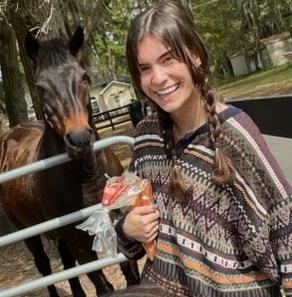
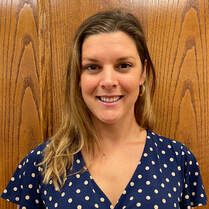
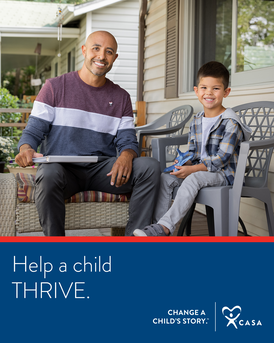
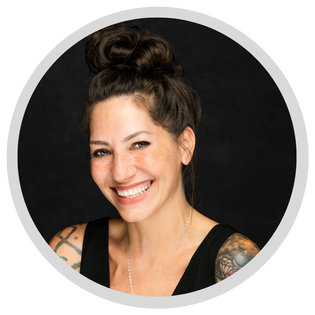

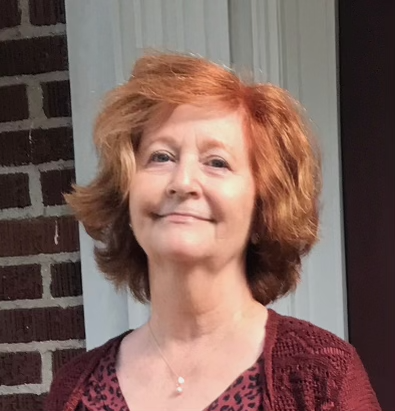
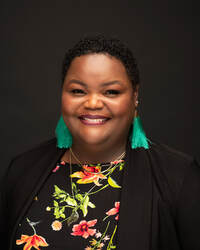
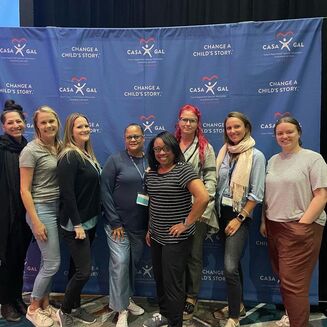
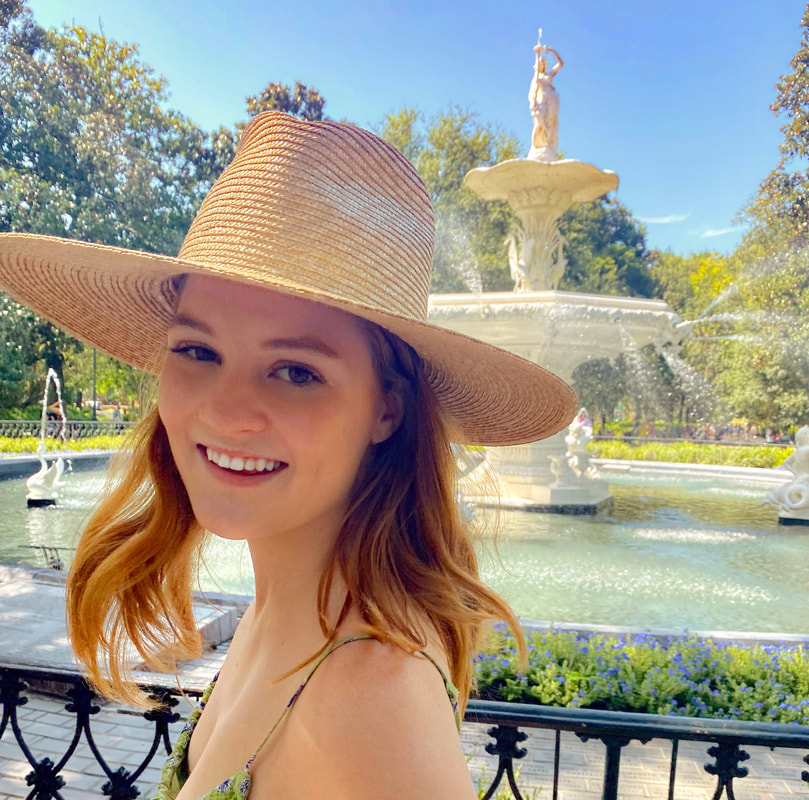
 RSS Feed
RSS Feed



